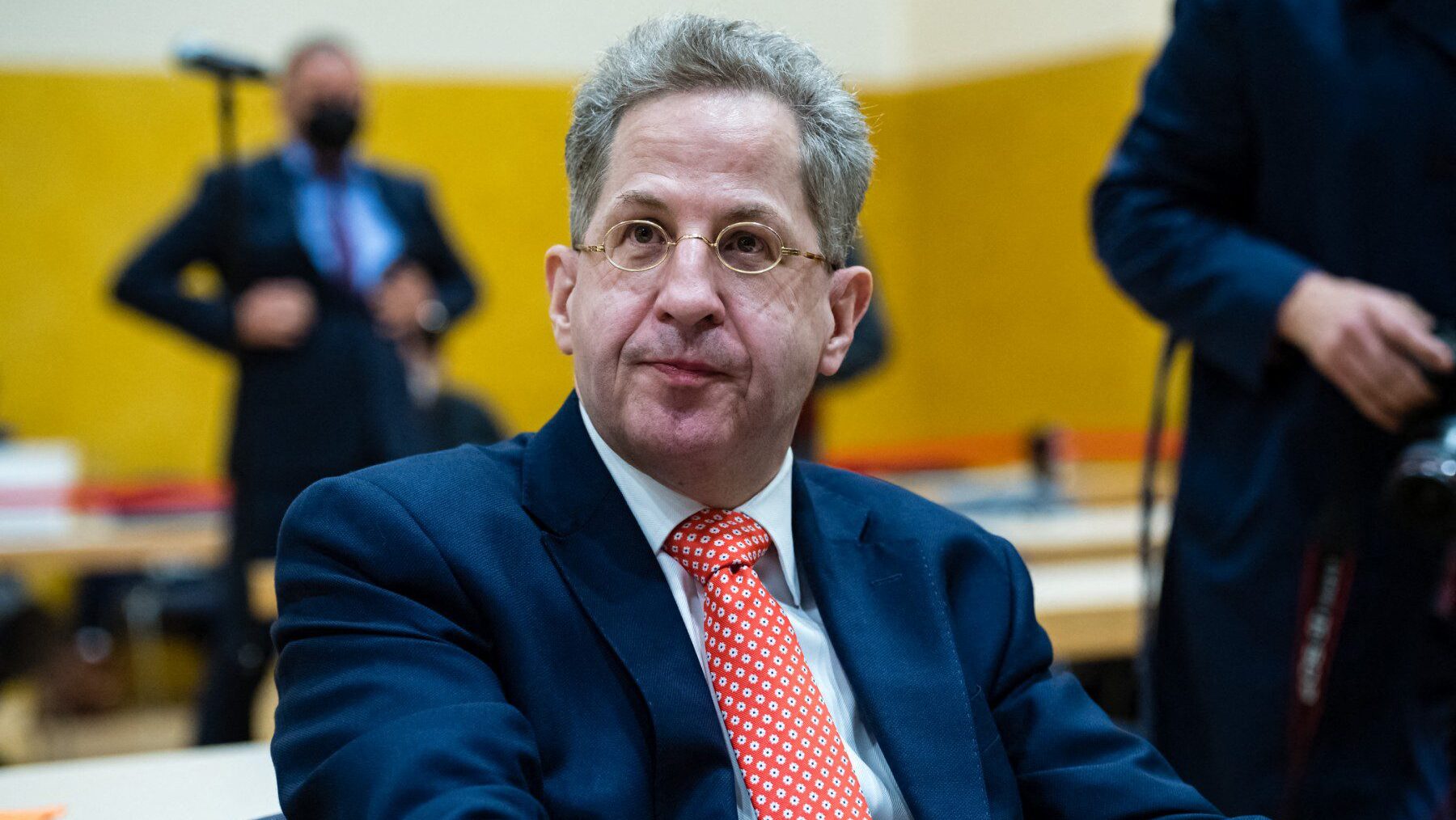
Hans-Georg Maassen, current head of the newly founded WerteUnion party.
Photo: JENS SCHLUETER / AFP
Barely two days after its official founding, the new conservative Values Union (WerteUnion) party in Germany has lost two of its most prominent members.
The party, formerly a rightist wing of the nominally center-right Christian Democratic Union (CDU), is headed by former spy chief Hans-Georg Maaßen and was intent on running in this year’s elections in the eastern German states of Saxony, Thuringia, and Brandenburg.
Maaßen, who early this month had been placed under surveillance for ‘right-wing extremism’, previously stated repeatedly that he would work with all parties that are “ready for a change in policy in Germany,” including, in what is a departure from all other parties’ official line, the anti-globalist Alternative für Deutschland (AfD).
However, following comments made by Maaßen in which he cited his ex-party as a “premium partner,”and not the “radical” AfD, former chairman Max Otte and economist Markus Krall on Monday evening decided to jump ship and leave the party.
On X, Max Otte, defending his decision, expressed his doubts about whether the party was “suitable to help shape the political change in Germany,” criticizing it for “significant political misjudgments” and “overconfidence.”
Die Aussagen aus den Reihen der WerteUnion lassen zweifeln, dass die Partei geeignet ist, die Politikwende in Deutschland mitzugestalten. Sie deuten stattdessen auf erhebliche politische Fehleinschätzungen und Selbstüberschätzung hin. Mit dem heutigen Tag trete ich aus der…
— Max Otte (@maxotte_says) February 20, 2024
In a considerably more lengthy post, Markus Krall decried—among many other things—the hand-picked inclusion of “old CDU (Christian Democratic Union) and FDP (Free Democratic Party) grandees … without any consultation with their base.”
Warum ich aus der WerteUnion ausgetreten bin.
— Dr. Markus Krall (@Markus_Krall) February 21, 2024
Mit meiner Austrittserklärung aus der WerteUnion habe ich mich eigentlich sehr kurz gehalten, weil ich nicht vorhatte, große Erklärungen über das warum abzugeben. Dem aufmerksamen Beobachter erschließen sich die Gründe ja eigentlich…
This, he argued, created a “new firewall”—as those erected against fellow anti-globalist parties AfD and former Die Linke MP Sarah Wagenknecht’s fledgling Sarah Wagenknecht Alliance (BSW)]—which would lead people to question whether the Values Union really represents a “genuine political turnaround in Germany.”
Otte’s and Krall’s exit prompted an internal debate—and outside speculation—on which party (either the CDU or the AfD) the Values Union would actually seek out for cooperation.
Meanwhile, Maaßen’s apparent political miscalculation has prompted him to make attempts to staunch his party’s bleed. On the party’s YouTube channel, he explained that there is a “natural closeness” to the CDU/CSU [the latter is the CDU’s sister party, only active in the state of Bavaria] parties, provided they share “our basic values,” by which he seems to imply that the CDU would first need to return to its conservative roots.
In a later post on X, Maaßen reiterated that his party is the only party which has stated explicitly that it is “prepared to talk to everyone and—should there be common ground—to work together with everyone, including the AfD.”
Die #WerteUnion gründet sich als Partei und ist die einzige Partei die explizit bereit ist, mit allen zu reden und – wenn die gemeinsame Grundlage stimmt – auch mit allen zusammen zu arbeiten, auch mit der AfD.
— Hans-Georg Maaßen (@HGMaassen) February 21, 2024
Jetzt wird die Programmatik weiter ausdifferenziert und auch das…
Parts of the AfD, he continued, he still deemed to be “radical,” which is not the same as “extremist” [the term the government employs as justification for cracking down on that party].
In his own party’s view, he concluded, “expressing a preference towards the other Union parties is only natural if and to the extent that these parties support a policy change.”
Alexander Mitsch, deputy chairman of the Values Union party, explained to Neue Zürcher Zeitung, that the party’s mere existence could make it become the “CDU’s compass” so that the old party starts appreciating its conservative roots once more.
In the past, Maaßen has criticized his former party for having, in large part, embraced left-wing values under the aegis of its former chairwoman, ex-Chancellor Angela Merkel.
In additional comments made during the YouTube interview, Maaßen explained that his party’s first goal was to be part of the government in Thuringia after the state elections on September 1st, and that it was “completely irrelevant” who helped them gain a majority in that pursuit.
In a February 17th press release officially presenting the Values Union, Maaßen, citing his party’s commitment to a “social market economy, freedom, and the rule of law as well as the Christian view of humanity,” said it wants to save Germany’s political system from turning into a “neo-socialist form of society that free-thinking people like us reject.”
Separating itself from the CDU, which “stands for mass immigration to Germany, for the taking away of our national identity and for people being told down to the last detail how they should live,” Maaßen added that his party wants “to shape the present and the future with the values that have proven themselves over decades and centuries,” thereby rejecting “socialist experiments” and climate and woke ideology.
The Values Union would also like to return some powers from the EU back to the member states, as the bloc has “increasingly transformed into an overreaching organization that disregards the national needs of individual countries,” concluding it was “obvious” that the EU needs “fundamental reforms.”
It remains to be seen to what extent Maaßen’s raising the CDU to “premium partner” status—viewed by many dissatisfied voters as part of an entrenched globalist elite—will affect the party’s future electoral success.
